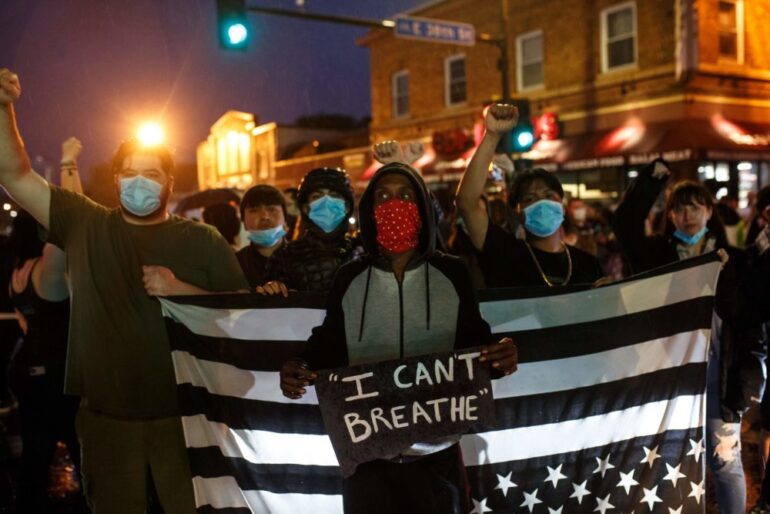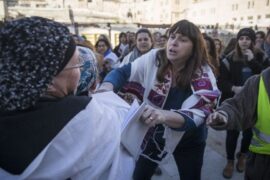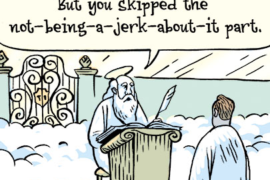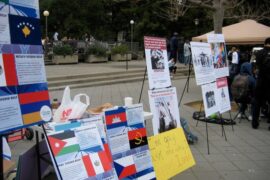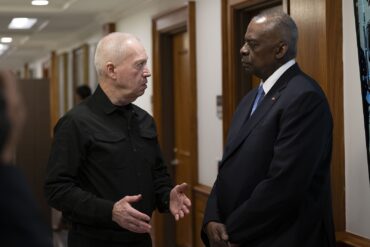As Jews in Israel and across the world celebrated receiving the Torah on Shavuot by studying through Thursday night to Friday morning, people across the United States took to the streets to protest the police killing of George Floyd in Minneapolis last Monday.
Floyd is the latest victim in a series of police killings that gained international attention through the protests of the #BlackLivesMatter movement, which demands an end to not only the all-too-frequent police violence against People of Color but also the institutionalized racism lying at the foundation of American capitalism.
Founded in the wake of George Zimmerman’s acquittal for the death of Trayvon Martin in 2013, the movement has grown tremendously since then, gaining traction with the subsequent killings of Michael Brown in Ferguson, Missouri and Eric Garner in New York City. Subsequent protests focused on the killings of Sandra Bland, Alton Sterling, Philando Castile, and numerous other victims of police brutality and racialized violence.
In America’s current political climate, the murder of George Floyd is drawing more attention and greater outrage than previous cases for a number of reasons. Dominant among these is almost four years of a divisive Donald Trump presidency, the political sabotage of the Bernie Sanders campaign, the Coronavirus crisis and the Trump administration’s mishandling of the pandemic. While armed protestors in Michigan stormed and occupied the state house over preventative closure measures meant to limit the spread of corona, police stood calmly by, measuring protestors’ temperatures before allowing them to enter the building. President Trump even tweeted his support for the action.
In contrast, this week in Minnesota and across the US, police have indiscriminately arrested, tear gassed, and driven into crowds of protestors and members of the press; while the president deplored demonstrators as thugs and threatened to send in military force.
This double standard in policing is nothing new. From its inception, American policing has been more concerned with the protection of white property than with the lives of PoC. From the brutal history of the “Fugitive Slave Laws” which requires northern law enforcement officials to return escaped slaves to their southern masters (after slavery was made illegal in those same northern states) to the persistent popular culture representations of “noble sheriffs” protecting frontier towns from “savage Indians,” US policing has consistently valued capitalist profits and moneyed interests over the lives of minorities.
In more recent decades, the “War on Drugs,” which consistently jails “hood” criminals while turning a blind eye to white collar crime, and the police and military protection of the Dakota Access Pipeline against the Dakota protestors and their allies in Standing Rock, have served as clear indicators that the growth and industrialization of capitalism has only further entrenched the ties between law enforcement and private property at the expense of Black, Native, and other marginalized communities.
Beyond this egregious double standard in policing, the political tension in the US runs beyond racial lines and party politics. The US-based left as a whole, of which the movement for black lives is an integral part, sees an increasingly bleak future in electoral politics. Despite almost four years of a Donald Trump presidency, the Democrats have shown little to no institutional resistance to the Republican White House and have offered up a senile presidential candidate from the peak of establishment politics, accused of sexual assault and known for inappropriately touching women and girls, who co-authored the 1994 crime law that contributed to the violent and racist tendencies of US law enforcement.
For activists whose decades of work through the “proper” political channels have proven insufficient to protect their communities from state violence, taking to the streets may be legitimately seen as the only recourse left.
Only time will tell if this most recent wave of civil unrest will create lasting change or if it will be ultimately defeated by the forces of reaction in law enforcement, government, and the racial and economic hierarchies they protect. But Jews, as the people selected to receive HaShem’s Torah and represent His Ideal for humanity, have a special responsibility to stand with these protestors in their demands for justice.
Israel is the nation chosen to be HaShem’s tool against injustice in all its forms and manifestations. As the Talmud (Shabbat 88a) describes in a discussion between Moshe and the angels over Israel’s claim to the Torah, it is our presence in this physical world, and the tribulations that we’ve faced as a result of our corporeality, that enable us to uphold the Torah in a way that angels in their elevated incorporeal state never could.
Israel’s presence and national mission in history necessitates dialogue, in thought and deed, with the broader world. It is not sufficient to pursue justice internally while allowing the rest of humanity to fall into disarray. Now that the Jewish people have returned to our land and reestablished political independence, we must clarify our obligations to the rest of the world. This question lies at the core of our transition from narrow Jewish nationalism to a uniquely Hebrew universalism. The Rambam and Ramban disagree on the extent to which Israel is responsible for enforcing the Noaḥide laws among non-Jews as a universal system of justice. While the former authorizes Hebrews to carry out the death penalty against those violating the Noaḥide laws, the latter insists justice to be the purview of each society’s own courts. Yet even in this disagreement, the importance of just systems of law amongst humanity is central to Israel’s universal vision for the world.
At its core, the movement for black lives, and its activism against extra-judicial police executions, is expressing a commitment and adherence to the universal Noaḥide principles of righteousness, in that it fights both in opposition to the negative commandment against murder and for the positive commandment of establishing just courts.
As Israel emerges from the Omer period of national growth and internal reflection from our liberation on Pesaḥ to our constitution as a nation with a specific historic mission on Shavuot, it is time to turn outwards and involve ourselves in universal struggles to realize HaShem’s justice and righteousness in the world.

